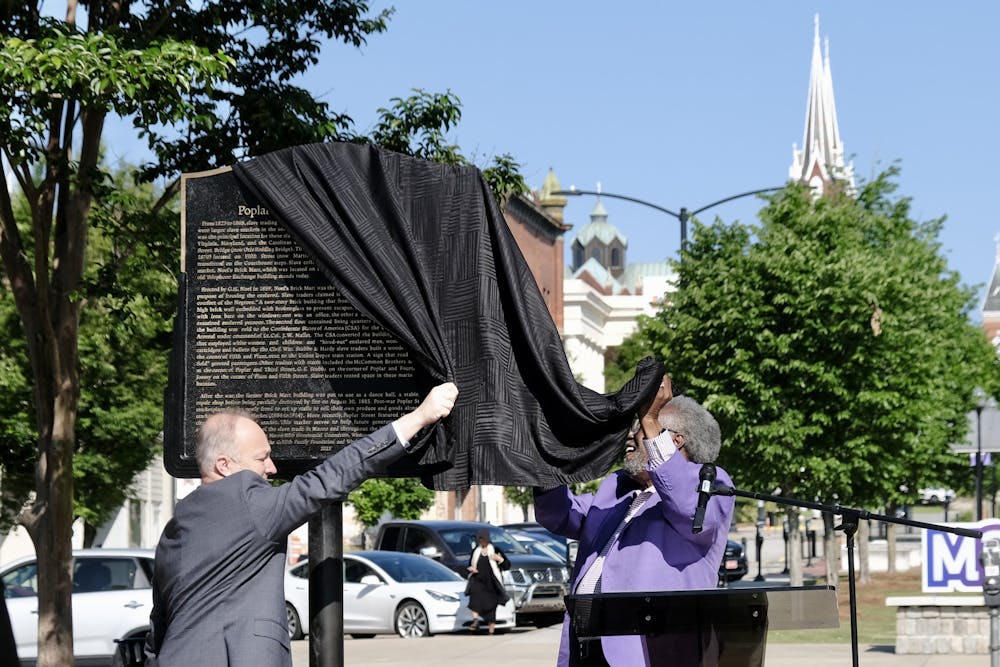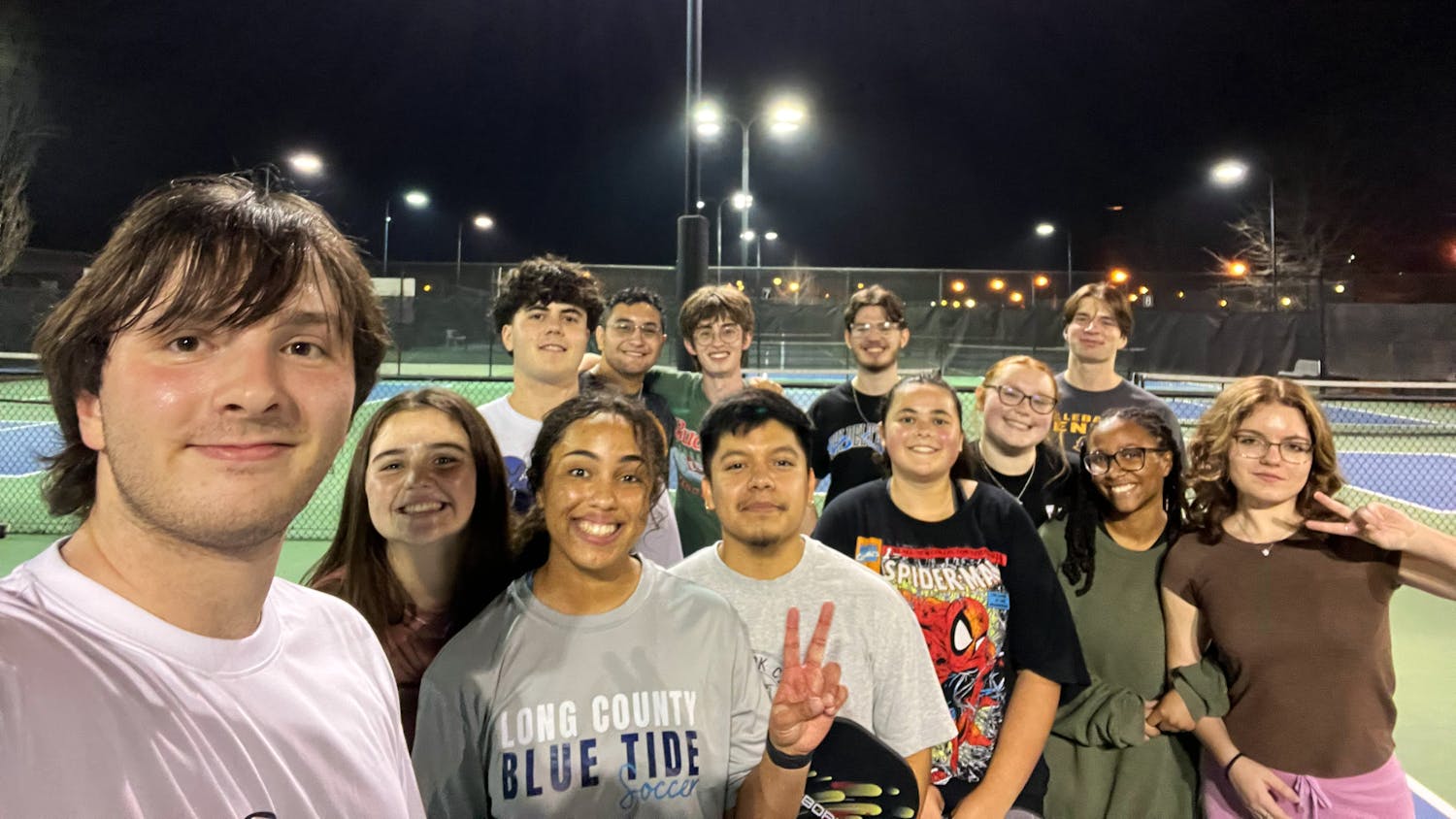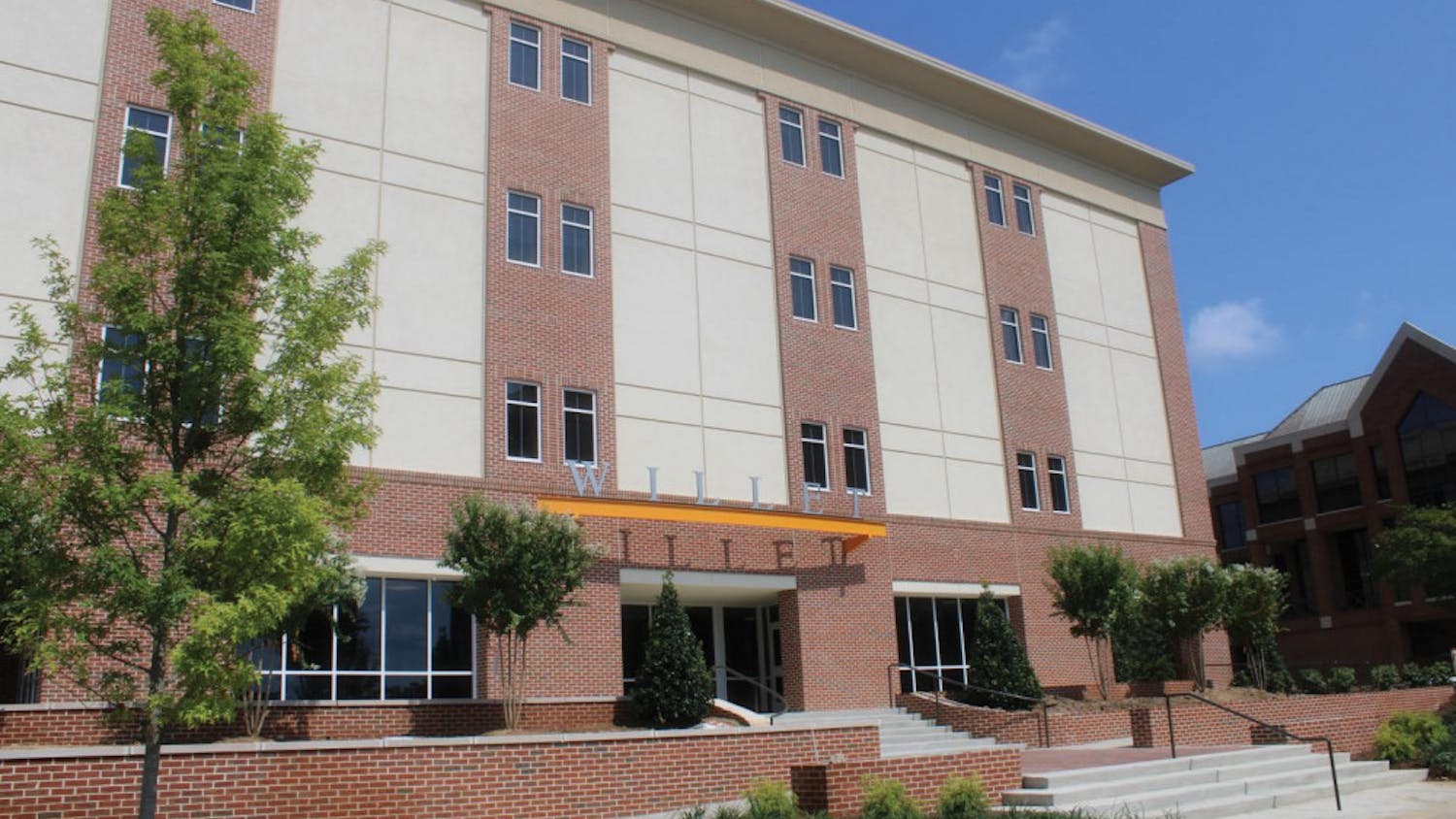Community members gathered in downtown Macon on Monday for the unveiling of bronze markers that display important pieces of Macon’s Black history. The project was organized by Macon200, a bicentennial campaign celebrating the city’s 200-year anniversary since its founding in 1823.
Macon200 co-chair and founder of the Macon-Middle Georgia Black Pages Alex Habersham spoke at the opening ceremony in Poplar Street Park, where the first marker was unveiled.
“These are the first of their kind devoted specifically to Black history, telling the truth about the good and the bad,” Habersham said.
The first marker is next to where the Poplar Street Slave Trading Market was previously located. The marker details the history of how, between 1823 and 1865, slave trading was a foundational part of Macon’s economic and social sphere. Most enslaved people were brought to Macon from Virginia, Maryland, and the Carolinas, before being sold at the market to the highest bidder.
The plaque reads: “This marker serves to help future generations remember those who suffered under the horrors of the slave trade in Macon and throughout the United States.”
“People who were enslaved built this town," Habersham said. "Their skills and craftsmanship can be found in some of Macon’s oldest buildings and their descendants are among Macon’s population today."
The bronze markers are designed intentionally to last at least a century.
“The only way they’re going away is if someone ripped them out of the ground. This marks a historic impact for generations,” Habersham said.
The other marker is located on the Pine Street Median, which was the Historic African-American Cotton Avenue district, also known as Macon's Black Wall Street. A third marker will be installed at the end of Mulberry Street Park where enslaved people were sold on the steps of the old Bibb-County courthouse and jail.
Macon-Bibb County Mayor Lester Miller also spoke at the ceremony, addressing the importance of this historic moment.
“We continue to celebrate our rich history to make sure everyone is proud in Macon-Bibb county,” he said. ”We hope that everyone will appreciate our history and the sacrifices people continue to make.”
The text on the markers were written by Murial McDowell-Jackson, the head of the Genealogical and Historical Room and Middle Georgia Archives at Washington Memorial Library. During eight months of research, she went through old newspapers, records and genealogies before writing the history of each marker. She’s proud of the work that she’s done for the Macon community and said it had been a long time coming.
"I think they're going to learn a part of Macon's history that has never really been talked about or revealed,” Jackson said. “I'm hoping that when people look at the marker that they'll examine their feelings. Are they shocked or surprised or do they feel like it's about time that this story was told?"
Macon200 partnered with Washington Memorial Library, Wesleyan College’s Lane Center for Social and Racial Equity and Visit Macon to create the project.
Dr. Brandi Simpson Miller, a history professor and assistant director for the Lane Center for Social and Racial Equity at Wesleyan College, helped lead focus groups that were catalysts for the historical marker instillation.
Starting in 2021, Wesleyan College partnered with the Tubman Museum to hold focus groups titled "Crafting Democratic Futures." They held a variety of open community meetings over the course of two years and eventually decided on three specific issues they wanted to address in Macon.
“It was the lack of art that was representative of people of African descent. The other really concerning thing which we still have not addressed is the erasure of the history of people of African descent in Macon in the K-12 system,” Miller said. “And then, things like this, just, you know, public history markers and things that acknowledge the contribution of people of African descent.”
They divided into groups and strategized ways to tackle these absences in Macon’s history. Now that their grant has ended, Miller said the Lane Center for Social and Racial Equity is putting together a board of community members, faculty and staff who will facilitate other projects they have planned to continue the work in the future.
“This is a huge step for this region of our country. These are difficult things, but this is part of a healing process,” Miller said.
In addition to the three bronze markers, ten smaller signs will be placed throughout downtown Macon, reading “Black History Happened Here.” The signs feature QR codes that allow passerby to participate in a self-guided audio tour of Macon’s new Black Heritage Trail. The tour will be accessible through a new app called “Tour Macon” available on the app store.
Eliza Moore ‘24 is an English and Journalism student at Mercer University. She is now in her second year working as The Cluster’s News Editor after a semester abroad. She is currently producing work for Macon Magazine and Georgia Public Broadcasting in addition to her work with The Cluster. She loves breakfasts, the ocean, and all things related to writing.





